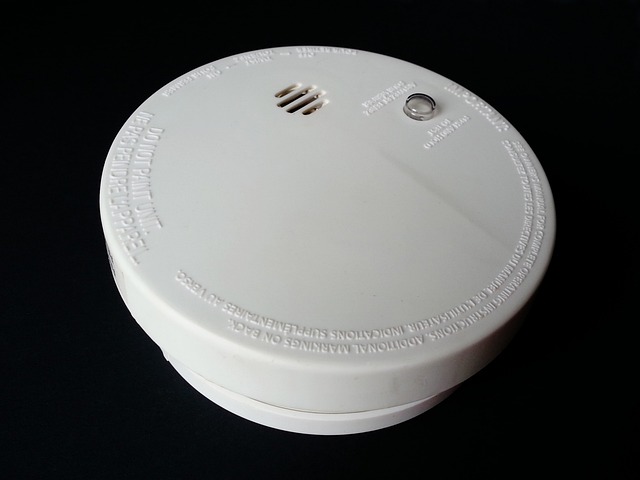As a business owner, ensuring the safety of your employees and customers is not just a moral responsibility but also a legal one. One of the most crucial components of workplace safety is having a reliable smoke alarm system in place. Smoke alarms are essential for detecting fires early, preventing injuries, and protecting your property. However, businesses must also comply with various regulations to ensure their smoke alarms meet the required safety standards.
In this article, we’ll explore the importance of smoke alarms for businesses, the regulations you must follow, and the steps you can take to stay compliant.
Why Smoke Alarms Are Crucial for Businesses
Smoke alarms serve as the first line of defense against fire-related emergencies, providing early warnings to occupants and allowing them to evacuate safely. Properly installed and maintained alarms can help:
- Save Lives: Early fire detection allows people to evacuate before it’s too late.
- Minimize Property Damage: Detecting a fire in its early stages can prevent extensive damage to your business property.
- Maintain Insurance Coverage: Complying with safety regulations ensures your business remains eligible for insurance claims in case of a fire.
- Avoid Legal Consequences: Non-compliance with smoke alarm regulations can lead to penalties, fines, or even lawsuits.
Smoke Alarm Compliance Regulations for Businesses
In many countries, including Australia and the United States, businesses are required by law to install smoke alarms in accordance with specific safety standards. Here are some of the key regulations that businesses must adhere to:
1. Fire Safety Standards and Codes
Most regions follow fire safety standards set by organizations such as the National Fire Protection Association (NFPA) or Australian Building Codes Board (ABCB). These codes outline the specific requirements for smoke alarm installation, maintenance, and testing.
For example, in Australia, AS 3786-2014 is the standard that covers smoke alarm installation in residential and non-residential buildings.
2. Installation Requirements
Regulations typically dictate where smoke alarms should be installed within a business. Key considerations include:
- Number of Alarms: The number of smoke alarms required depends on the size of the building and its layout.
- Placement: Smoke alarms should be installed in hallways, near staircases, and in rooms with electrical appliances that could pose a fire hazard. They must be installed on the ceiling or high on the wall to detect smoke effectively.
- Interconnection: In some cases, alarms must be interconnected, so when one alarm detects smoke, all alarms in the building sound the alert.
3. Regular Maintenance and Testing
Smoke alarms in businesses must be tested regularly to ensure they are functioning correctly. Most regulations require businesses to:
- Test the alarms monthly to ensure they are working.
- Replace batteries at least once a year, or as needed based on the manufacturer’s recommendations.
- Inspect alarms for dust or other debris that may prevent proper function.
- Replace smoke alarms every 10 years, or sooner if they are malfunctioning.
4. Compliance Documentation
Many local authorities require businesses to maintain records of smoke alarm inspections, maintenance, and testing. These documents serve as proof that your business is compliant with fire safety regulations.
Steps to Stay Compliant with Smoke Alarm Regulations
Here’s a checklist of actions you can take to ensure your business stays compliant with smoke alarm regulations:
1. Assess Your Business’s Fire Safety Needs
Start by evaluating your business premises to determine the appropriate number of smoke alarms, their placement, and whether any additional fire detection systems (such as carbon monoxide detectors or heat sensors) are needed.
2. Hire a Certified Professional for Installation
To meet compliance requirements, have a licensed fire safety professional install your smoke alarms. They can ensure that the alarms are placed in the correct locations and meet all local fire safety standards.
3. Set Up a Regular Testing and Maintenance Schedule
Create a maintenance plan for regular testing and battery replacement. Schedule routine inspections to check that your smoke alarms are working as expected.
4. Keep Documentation Up-to-Date
Maintain detailed records of installation, testing, maintenance, and any repairs made to the smoke alarm system. This will help if you’re ever audited or need to demonstrate compliance during a safety inspection.
5. Educate Your Employees
Train your staff on fire safety protocols, including how to test alarms and how to respond in case of an emergency. Ensure everyone knows where the smoke alarms are located and how to use the fire alarm system effectively.
The Benefits of Compliance
Remaining compliant with smoke alarm regulations offers several advantages beyond legal protection:
- Reduced Fire Risk: Properly maintained smoke alarms significantly reduce the risk of fatalities and property damage from fire.
- Insurance Benefits: Compliance can lower your business’s insurance premiums, as it demonstrates proactive risk management.
- Enhanced Reputation: A commitment to safety enhances your reputation as a responsible business, which can positively impact employee morale and customer trust.
Conclusion: Prioritize Smoke Alarm Compliance
Complying with smoke alarm regulations is vital for the safety of your employees, customers, and business assets. By following installation guidelines, maintaining your smoke alarms, and keeping records up-to-date, you can ensure your business meets all legal requirements while offering peace of mind in the event of a fire emergency.
Want expert advice on ensuring your business’s fire safety compliance? Contact us today for assistance in choosing the right smoke alarms and implementing a maintenance plan tailored to your business’s needs.


 Your Local Reliable Electrician That You Can Trust
Your Local Reliable Electrician That You Can Trust 